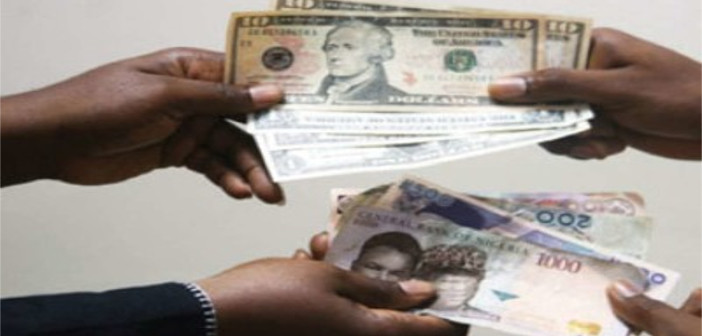The uncertainty surrounding the true value of the naira and it’s attendant effects on the economy and the people has continue to elicit reactions from all and sundry especially, the economists.
The Nigerian Economists Society (NES) has urged the Central Bank of Nigeria (CBN) to review the new foreign exchange (forex) regime, saying some form of managed pegged system is consistent with the structure of the Nigerian economy.
NES also warned that the country may slide into depression, saying the flexible forex regime of the CBN cannot survive in a non-productive economy.
They said managed float policy is a better option given the Nigerian economy’s current local productive capacity and over-dependence on crude oil as its major source of forex earning with its price determined exogenously driven in the global market.
The economists, majorly varsity dons, spoke separately yesterday at a one-day symposium on the topic: “Managing the Naira”, at the University of Uyo.
In attendance were the Director-General, West African Institute for Financial and Economic Management, Prof. Akpan Ekpo; Prof. Badayi Sani of Bayero University, Kano; former Executive Secretary, National Man-Power Board, Prof. Joe Umo; Vice-Chancellor, Veritas University, Abuja, Prof. Mike Kwanashi, former NES President; Prof. Akin Iwayemi, University of Ibadan and former Special Adviser on Economic Affairs, Office of the Chief of General Staff, the Presidency, Prof. Edet Akpakpan.
According to them, given the structure of the economy, the current forex policy is not a viable option as it suits an industrialised economy of which Nigerian economy has not yet reached.
A communiqué issued by the society at the end of the programme urged the Federal Government to declare national economic emergency to galvanise the entire country into action in order to save the economy.
“The new foreign exchange policy which implies that the exchange rate will be determined by market forces (clean float) is faulted as it admonishes a spot and forwards, assumes the economy is sophisticated and productive in producing needed goods and services typically of the advanced economies, when the actual problem in the foreign market is a supply-side issue (scarce availability of foreign reserves) which is insufficient to satisfy the demand.
“Floating will generate macroeconomic instability as financial market participants stand to gain through market speculation which will only stimulate portfolio investment (hot money) as the real or “green field investment’ which is expected to generate wealth and create employment would not be attracted because of macroeconomic uncertainty.
“This in turn has the tendency to generate further inflationary pressures, reducing the value of financial assets,”the communique read in part.
The communiqué added that CBN should approve only institutions that meet its conditions noting that policy harmonisation should be enforced to curb fiscal dominance and monetary accommodation, promote local production with import-substitution strategies as import bill is high.
The communiqué explained that the CBN intervention should be in the areas that enhance local production particularly SMEs, and the manufacturing sector. The economists suggested that the CBN should also buy from the market to stabilise the exchange rate when the need arises.




